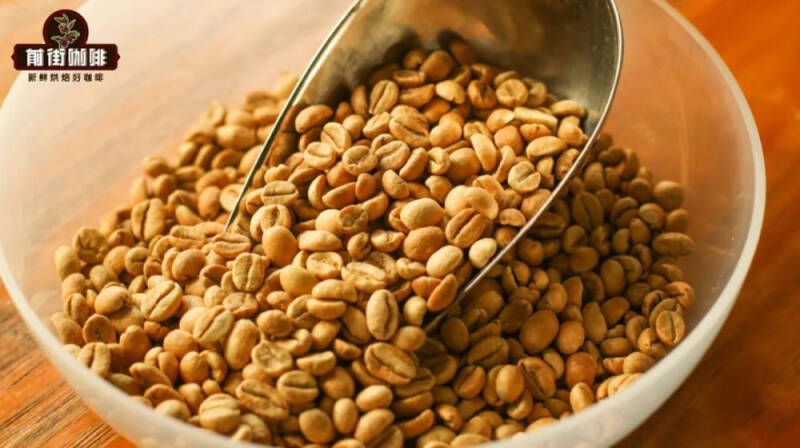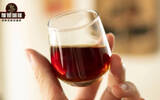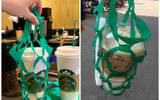Where does coffee's sweetness come from? What is sweetness? What is the difference between the sense of smell before and after the nose?
The thing is, the last time a guest came to the store and drank the coffee from the front street, he asked such a question: "Boss, is your cup not clean, otherwise the coffee is so sweet?" Scared, Qianjie "whoosh" jumped up to make a new cup and handed it to the guest. It was found that it was because the coffee was so sweet that it was mistakenly thought that the cup was not washed clean and that the coffee was so sweet because of the residual sugar.

It seems outrageous, but it is really what happened! However, I believe that many beginner friends do not quite understand the sweetness of coffee. After all, every time they order what the barista calls "high sweet coffee", they always bring a cup of black coffee that is either bitter or sour, not only can not drink any of it, but also look embarrassed because of these two tastes! Therefore, Qianjie will share today where the sweetness in the coffee comes from!
Does it have something to do with the sugars in coffee beans? When it comes to sweetness, then people are bound to think directly of sugar, and the sugars in coffee beans have monosaccharides, disaccharides and polysaccharides, accounting for about 50% of the weight of raw beans. However, not all sugars are sweet!

For example, the polysaccharides, which are neither sweet nor soluble in water, account for the largest proportion of coffee beans! Because it is coffee bean cellulose (coffee dregs is it). While monosaccharides are both soluble in water and sweet, glucose and fructose belong to the category of monosaccharides, while disaccharides are composed of two monosaccharide molecules after dehydration, which are also soluble in water and have a sweet taste. Sucrose, maltose and lactose all belong to the category of disaccharides.
But the sweetness in coffee does not come from these sugars. In the process of roasting, the substances contained in coffee beans will continue to undergo chemical reactions, decomposition and combination, thus evolving into more flavor substances. This is the case with sweet monosaccharides and polysaccharides, which are constantly baptized by various reactions during baking until the baking stage, leaving the taste buds to feel very little sugar, although there are, but at this time the amount of sweetness can not be captured by the taste buds! So we can't feel the sweetness directly through these two sugars.
So where does the sweetness come from? Because these taste substances are too few / none, it is difficult for taste buds to feel their presence, so we can feel that sweet nature not only depends on taste buds, but also needs other sensory assistance, such as "smell".
The sense of smell is divided into the sense of smell before the nose and the sense of smell behind the nose! The sense of smell in front of the nose is to catch the smell directly through inhalation. For example, when we feel the dry and wet fragrance of coffee, we use the sense of smell in front of the nose and smell directly; while the sense of smell behind the nose is in the drinking stage, the aroma of coffee will run to the nasal passage during swallowing, and the aroma we feel at this time comes from the sense of smell behind the nose. So as long as we capture the taste in the mouth and the smell in the mouth during drinking, the brain will combine them on their own, eventually showing the flavor of a particular food in memory.
If this figurative aroma can remind us of sweeter food, then we will subconsciously think that this cup of coffee has a very high sweet taste! For example, after several baking reactions, the substances in coffee eventually evolve into similar aromas such as toffee and black sugar, then we will feel the aroma and combine the taste of coffee in the mouth to form the corresponding sweetness! The sweetness in the mouth of the barista comes from this!
So, how should we train the sweet perception? Drinking more is always the most recommended way in Qianjie, but drinking too much can not bring too much improvement, so we still need a little skill ~ for example, we can make a preliminary imagination of this cup of coffee through dry and wet fragrance before tasting, because the aroma at this time will be stronger, so feel it first! Then close your mouth when you swallow and exhale through the nasal cavity to judge the sense of smell behind the nose. If an agreement is reached, sweetness will easily emerge!
But often a person is more likely to be constrained by imagination, after all, the aroma of coffee is always similar, not exactly the same as the food we usually eat, so you might as well bring friends to analyze it when you taste it! Even if you don't smell anything, maybe your friend can feel it, and with his sharing, you will soon be able to add the aroma of the food and feel the sweetness of the coffee!
-END-
Front Street Cafe
No. 10 Baoqian street, Yandun road, Dongshankou, Yuexiu district, Guangzhou, Guangdong province
Important Notice :
前街咖啡 FrontStreet Coffee has moved to new addredd:
FrontStreet Coffee Address: 315,Donghua East Road,GuangZhou
Tel:020 38364473
- Prev

What's the difference between decaf, decaf and regular coffee?
For some time in the past two years, there was a sudden upsurge of "decaf" in the coffee market. People who can't sleep after drinking coffee because of caffeine intolerance need to find a substitute to satisfy their stomachs, and then people find the wonderful existence of decaf coffee, and it can be solved very well.
- Next

Dropped it! Starbucks, your bag is broken again!
▲ Click to follow | in the daily boutique coffee culture magazine coffee workshop chain coffee brands, Starbucks has been practicing environmental protection, and the packaging materials are mostly made of biodegradable and environmentally friendly materials, such as biodegradable straws made from coffee grounds and environmentally friendly Kraft paper bags. Most netizens understand and support it.
Related
- What grade does Jamaica Blue Mountain No. 1 coffee belong to and how to drink it better? What is the highest grade of Blue Mountain coffee for coffee aristocrats?
- What are the flavor characteristics of the world-famous coffee Blue Mountain No. 1 Golden Mantelin? What are the characteristics of deep-roasted bitter coffee?
- Can I make coffee a second time in an Italian hand-brewed mocha pot? Why can't coffee be brewed several times like tea leaves?
- Hand-brewed coffee flows with a knife and a tornado. How to brew it? What is the proportion of grinding water and water temperature divided into?
- What is the difference between Indonesian Sumatra Mantinin coffee and gold Mantinin? How to distinguish between real and fake golden Mantelin coffee?
- What does bypass mean in coffee? Why can hand-brewed coffee and water make it better?
- Unexpected! Ruixing Telunsu lattes use a smoothie machine to foam milk?!
- % Arabia's first store in Henan opens into the village?! Netizen: Thought it was P's
- Does an authentic standard mocha coffee recipe use chocolate sauce or powder? Mocha Latte/Dirty Coffee/Salty Mocha Coffee Recipe Share!
- What is the difference between Vietnam egg coffee and Norway egg coffee? Hand-brewed single product coffee filter paper filter cloth filter flat solution!

